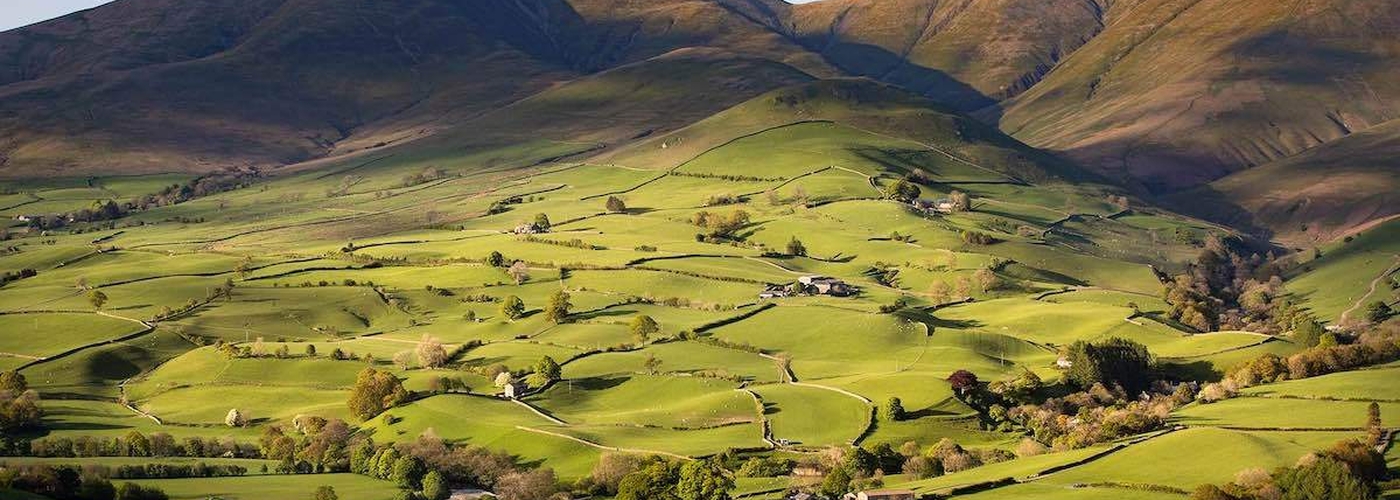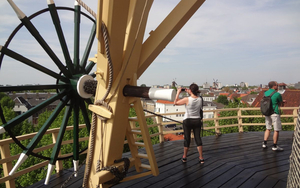Neil Sowerby and Captain Smidge have been on their travels in Cumbria
Bragging rights for waterfalls, there’s a thing. Gaping Gill, inside an Ingleborough cavern, and Hardraw Force, outside near Hawes, are the highest unbroken falls in England, but Cautley Spout pips them both for height with its series of cascades tumbling a total of 650ft.
Which makes it hard to photograph in its vertiginous entirety when you have a chihuahua in a carrier on your chest and just ferns to hang onto.
The girls were never destined for the pot, but their piglets will be
We were sparing Captain Smidge’s little legs for later exertions. Yet it’s not a particularly testing trek up from the Cross Keys on the Sedbergh to Kirkby Stephen road – under three miles the spectacular round trip. Just the stony remains of an Iron Age settlement to negotiate en route.
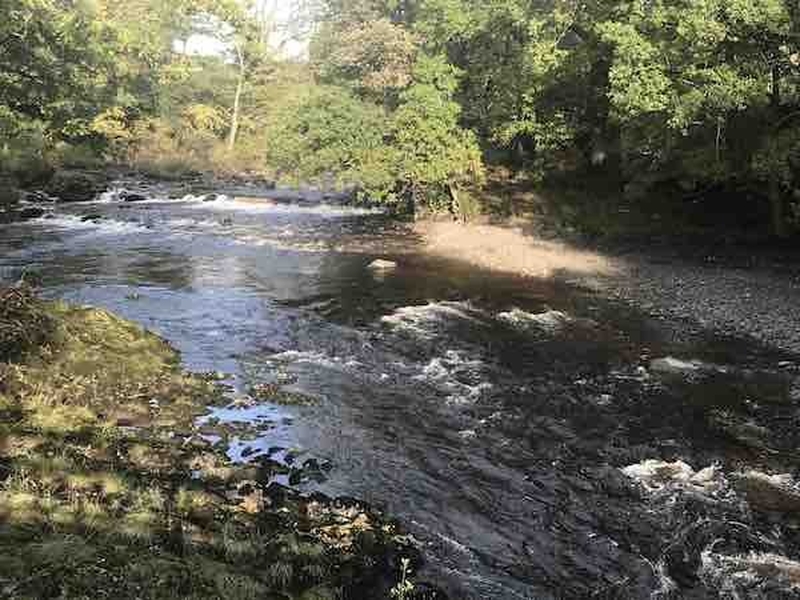
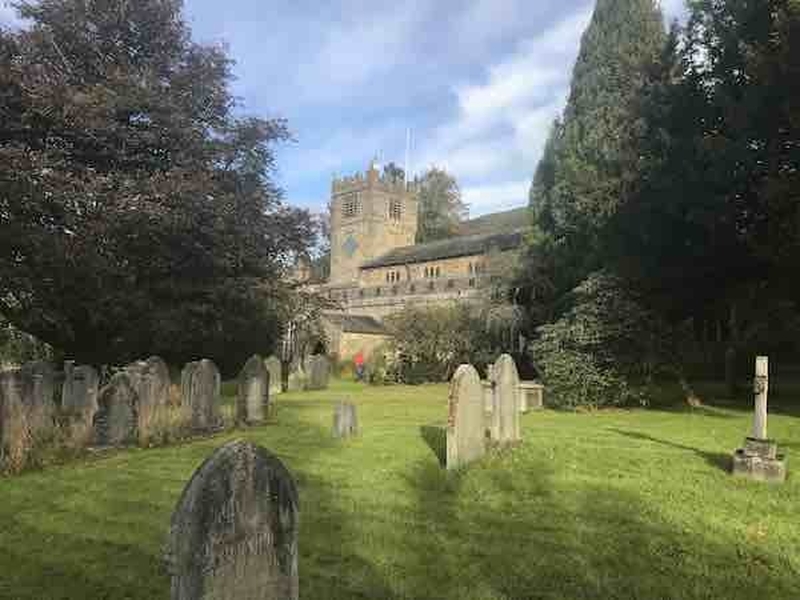
A temperate lunch at the Cross Keys
We were fortified by lunch first on the terrace of the 400-year-old inn and buoyed by the most perfect autumn weather. “Look over there on the path; it’s brought out the Benidorm brigade, short skirts and high heels,” lamented wry landlord Alan Clowes as he served up rabbit pie and provided glasses for our Rheinpfalz Pinot Noir. The Cross Keys is a "Temperance Inn", so doesn’t sell alcohol but Alan, custodian of this National Trust property with his wife Kitty for a quarter of century, is happy for you to bring your own.
The couple are Quakers. Fittingly, since the property was originally home to brave champions of the movement (of which more later, and it’s heart-rending), only becoming an inn in the next century to fuel travellers on the new road.
And the temperance part? In 1902 a drunken punter was rescued from the River Rawthey by the landlord, who himself perished. Guilt-stricken, the survivor’s family bought the inn and wrote the no booze clause into its deeds.
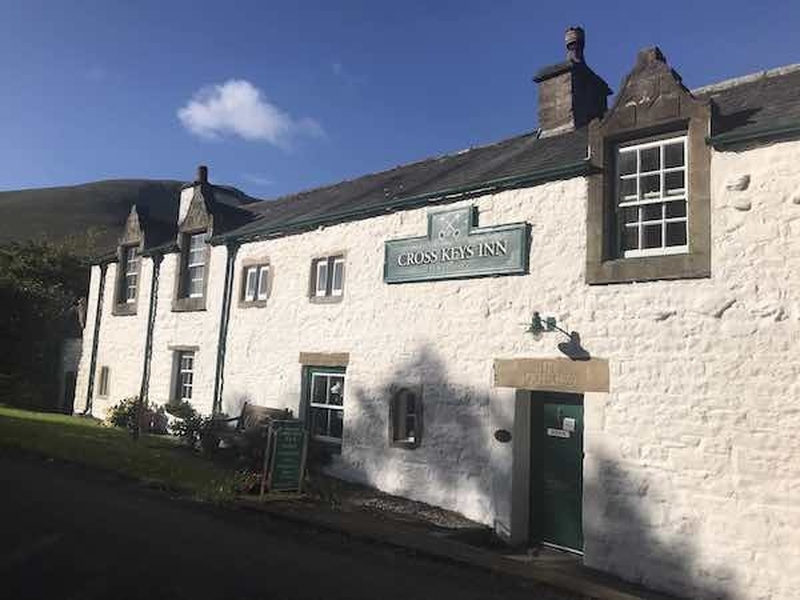
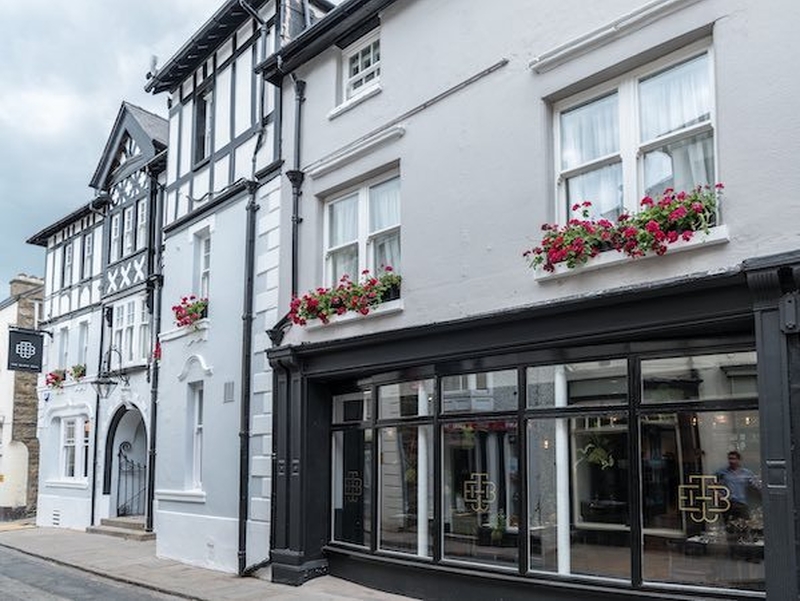
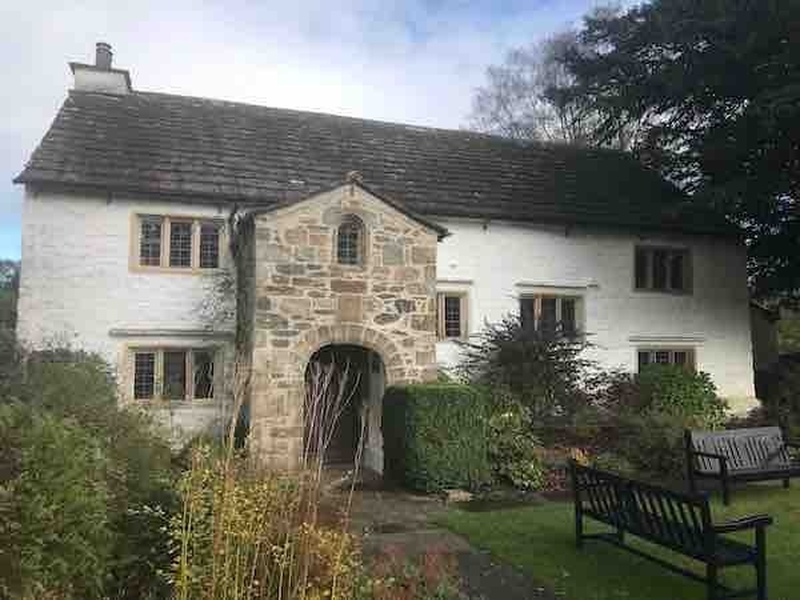
These days there’s an imaginative roster of soft drinks alongside "farmhouse style" victuals and two bookable bedrooms in the atmospheric old hostelry (though no dogs allowed inside – NT rules). It also doubles up as a "Book Cafe", which links it nicely to Sedbergh four miles south – England’s official book town and home to our wonderful Cumbrian base camp, The Black Bull.
A Quaker quest and a visit to The Black Bull
Base camp? Well, beyond the shelf-browsing and some seriously classy food and drink, out of the blue we embarked on an illuminating Quaker quest along some muddy paths and fields. Just one week later we couldn’t have done it. Rainfall of appropriately biblical proportions would wreak havoc.
We felt blessed with the Black Bull. A spring detour on our way back from The Lakes had allowed us to recce the place first. Its 18 bedrooms (three of them dog-friendly) were still shuttered up and a walk-in Sunday lunch of wood-fired sourdough pizza and barbecue was served in the "Stables & Meadow" outdoor space. We were hooked.
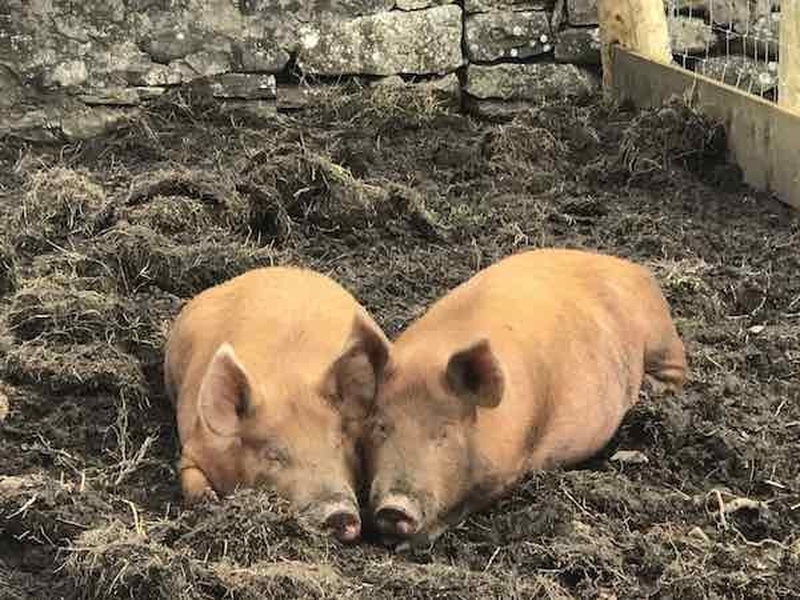
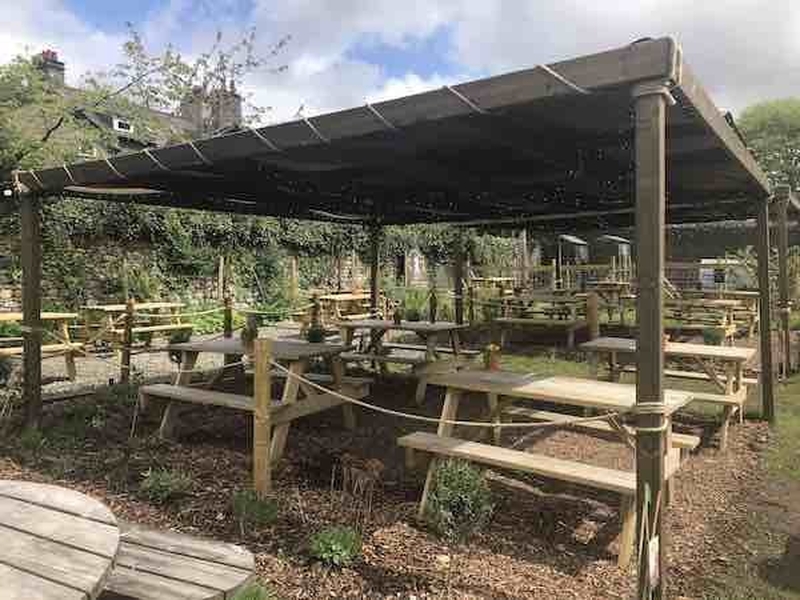
Post lockdown, the alfresco remains a weekend dining option, still under the beady eye of Stumpy and Snuffkin, pet pigs of Black Bull owners James Ratcliffe and Nina Matsunaga. Six months on this Tamworth Twosome in their pen have put on some extra timber. The plan is to breed off them; the girls were never destined for the pot, but their piglets will be.
A chihuahua snaffles a slither of sirloin
James is already sourcing some top quality produce from his native Cumbria, while Nina, born in Germany of Japanese parents, is working imaginative magic in the kitchen.
All this is evident from the day’s a la carte, which we sample in the breakfast section of the restaurant, to allow Smidge to join us. Howgill Herdwick lamb? A paw’s up from the hound. Ditto wild Lakeland venison and partridge. He even found room, drat him, for a tithe of my British White sirloin. The exotic presence of Hokkaido pumpkin, laphet, lotus root and seaweed signalled the distant influences Nina brings to the plate. Much curing and fermentation goes on, too. All of this was a seamless fit for all the dishes we tried. Dinner stand-out was a £3.95 side for my sirloin – a quite sumptuous potato and celeriac anna with black garlic and parmesan.

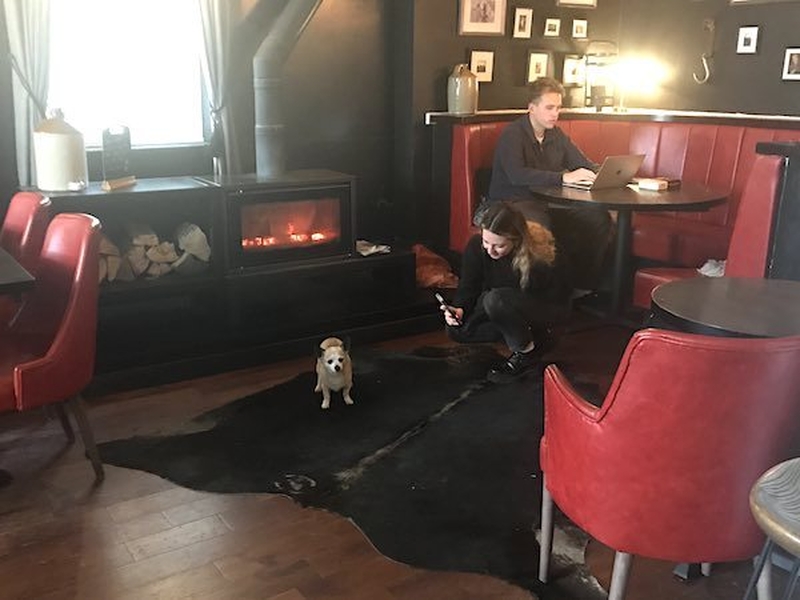
A constantly evolving wine list also proclaims an ambition that deserves to be less under the radar. Maybe if Sedbergh were in the Cotswolds? But there you’d find it harder to maintain the proper pubby feel as in this establishment that has been the beating heart of the town since the 17th century.
That heart was almost stopped, the site forlorn, by the time James and Nina moved up from Manchester to open a soon-to-be acclaimed cafe called The Three Hares further along a Main Street dotted with book venues and, whoopee, a wealth of independent shops. You can still buy Nina’s daily baked bread and homemade miso in the Hares deli.
Easily the pick of the second-hand bookshops is the truly comprehensive Westwood, housing 70,000 titles in a former cinema. In truth as a book town Sedbergh lags behind Hay-on-Wye, where Westwood once had an outlet, and Wigtown in Scotland, but still it’s so easy to get engrossed.



A Mancunian romance in The Mark Addy
It’s a world away from Manchester, where James and Nina met. She had come for a catering interview and dined at the much-loved Mark Addy, where James was front of house. The pair immediately hit it off, chef boss Robert Owen Brown playing benevolent cupid over drinks. When Nina moved to the city the pair created Moochers, a street food operation you’d find at Levenshulme and other farmer’s markets.
The attention to detail the pair showed even then is apparent throughout the sensitively restored Bull. The stairs and landings are deceptively sombre but behind the dark oak doors lie sleek, high-spec bedrooms given a certain frisson by the bathrooms – claw foot bath, white tiles, Sedbergh Soap Co toiletries and all – being separated by see-through glass divides.
Downstairs Captain Smidge posed for Instagram selfies in front of the bar’s log-burner while we supped an Earl Grey tinctured ale from a local brewery. All very cosy, but the spirit of Quaker founder George Fox was calling us and we could not say "nay".

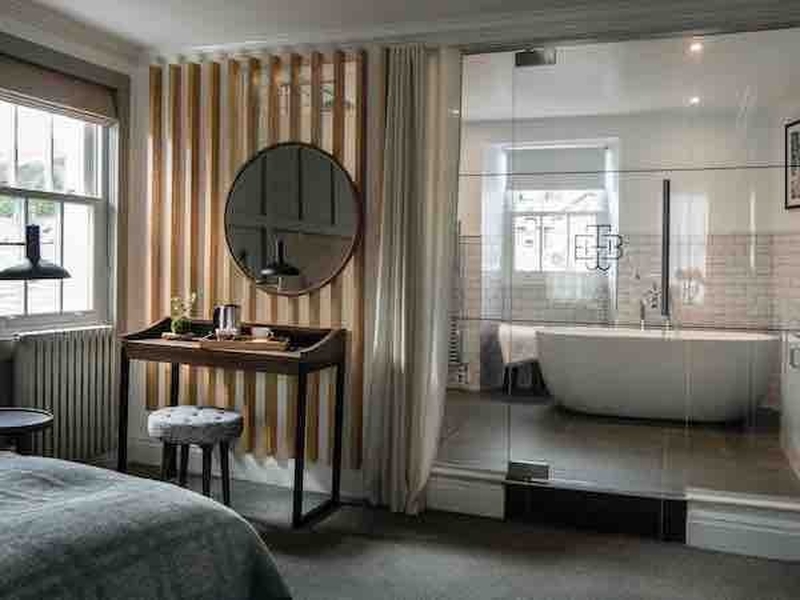
From the Tourist Information Centre, which naturally doubles up as a bookshop, we purchased the Sedbergh Quaker Trail pamphlet and walk maps, then set forth.
Fox was a 17th-century dissenter who railed against Cromwell’s scorched earth approach to promulgating Puritanism, but he only found his true religious path after climbing Lancashire’s Pendle Hill in 1652. In a life-altering vision of the world, he saw “a great people in white raiment by a rivers syde comeinge to ye Lorde”.
The founding of the Quakers
It set him on the path to founding the Religious Society of Friends, commonly known as the Quakers, and in under a decade, it had 50,000 adherents, the core in the North Country, dispensing with the need for hymns, set prayers, traditional church buildings, the whole religious hierarchy.
In Whitsun Week of that same year, he arrived in Sedbergh and preached under a yew tree in St Andrew’s churchyard just around the corner from the Black Bull. He refused to enter the church, just as at the end of the week he waited for folk to leave the small chapel up on Firbank Fell before addressing the gathering from a crag for three hours.
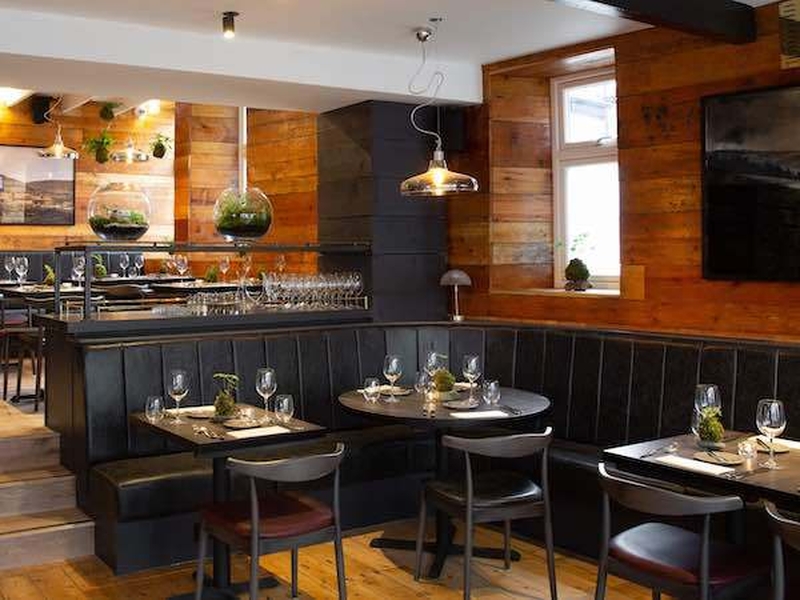
On the site, since known as Fox’s Pulpit, there’s a plaque honouring the great iconoclast, whose pacifist creed still resonates today. It’s a four-mile walk from Sedbergh, but you could just take the car up and scramble across a field to it; you’ll be rewarded with a magnificent panorama of the Howgill Fells.
The one essential hike, though, is a glorious four-mile round trip, much of it along the turbulent River Rawthey on the Dales Way footpath. Your destination is Brigflatts, home of the world’s oldest Quaker Meeting House, a Grade I listed building erected 25 years after Fox’s first visit.
It is a simple, lime-washed building down a lane in a minuscule hamlet. Inside there is a sense of unearthly calm; outside there’s a garden for contemplation and across the lane a boneyard. Here among the centuries-old graves is a tombstone from 1985 honouring the poet who put this place on the map for so many of us. It has long been a place of personal pilgrimage for me on his account.
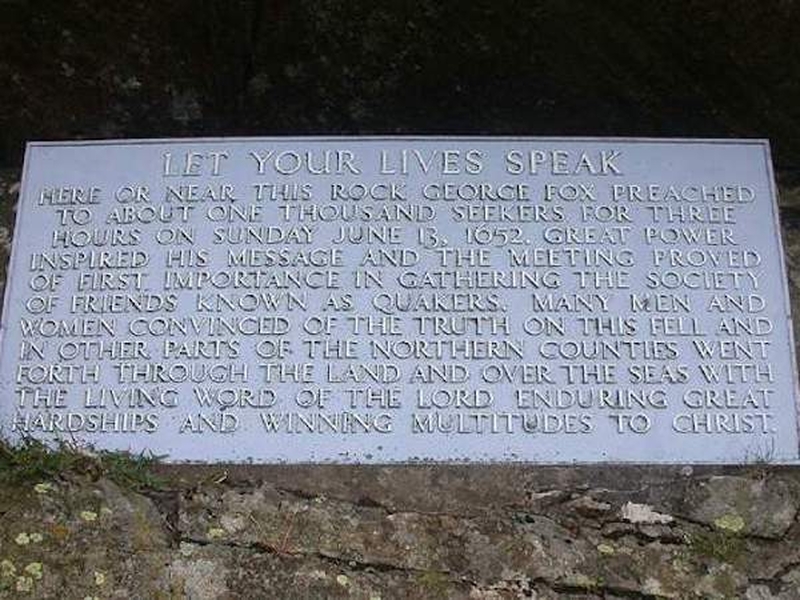
"Brag sweet tenor bull, descant on Rawthey’s madrigal, each pebble its part for the fells’ late spring." So begins Briggflatts (note the two Gs), an astonishing poem of memory and loss published in 1965, sealing the reputation of Basil Bunting, then 65 and trammelled by obscurity and penury as he was for much of his long life.
Educated among Quakers but never one proper, jailed as a teenage conscious objector during the Great War, hapless habitué of the Parisian literary scene, then a war pilot and foreign correspondent in the Middle East before returning to his native Newcastle to work, bizarrely, on the business desk of the local paper, Bunting was always an outsider, who kept his Northumbrian burr.
He visited friends in Brigflatts as a youth and fell for a lass called Peggy Greenbank. Nearly 50 years later he met his muse again after the poem shaped by that adolescent fling was published and made his name.
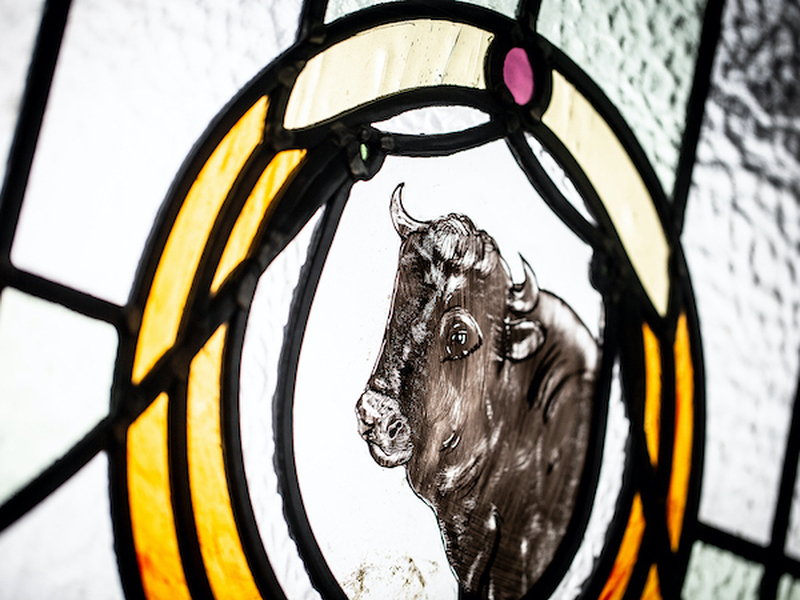
Let’s end our Quaker Trail at the place we began – with a story that sums up the tribulations of those folk who chose to follow Fox. In 1654 The Cross Keys was then High Haygarth, home to Gervase and Dorothy Benson. Lawyer Gervase was one of the leaders of the Westmorland Seekers, who became the early Quakers. His wife was one of the most vociferous against established church attendance. After being accused of heckling the parish priest she was sent to York Jail when seven months pregnant. She bore a son there. Told she would only be released if she agreed not to disrupt further services, she refused. In 1656 she died in prison, the body brought back to be buried in the High Haygarth garden.
1652 Country is the tourist label given to the North West hills George Fox traversed. I like to think their beauty played a huge part in his life-shaping visions. Sedbergh, the Howgills and Dentdale beyond remain England at its most sublime.
The Black Bull, 44 Main Street, Sedbergh, Cumbria (doubles from £125 B&B, dogs £20 a night), 015396 20264.
Discover more about Quakerism.
The Quaker Tapestry Museum in Kendal just 12 miles away brings 350 years of social history and Quaker stories to life in more than 40 embroidered panels.





